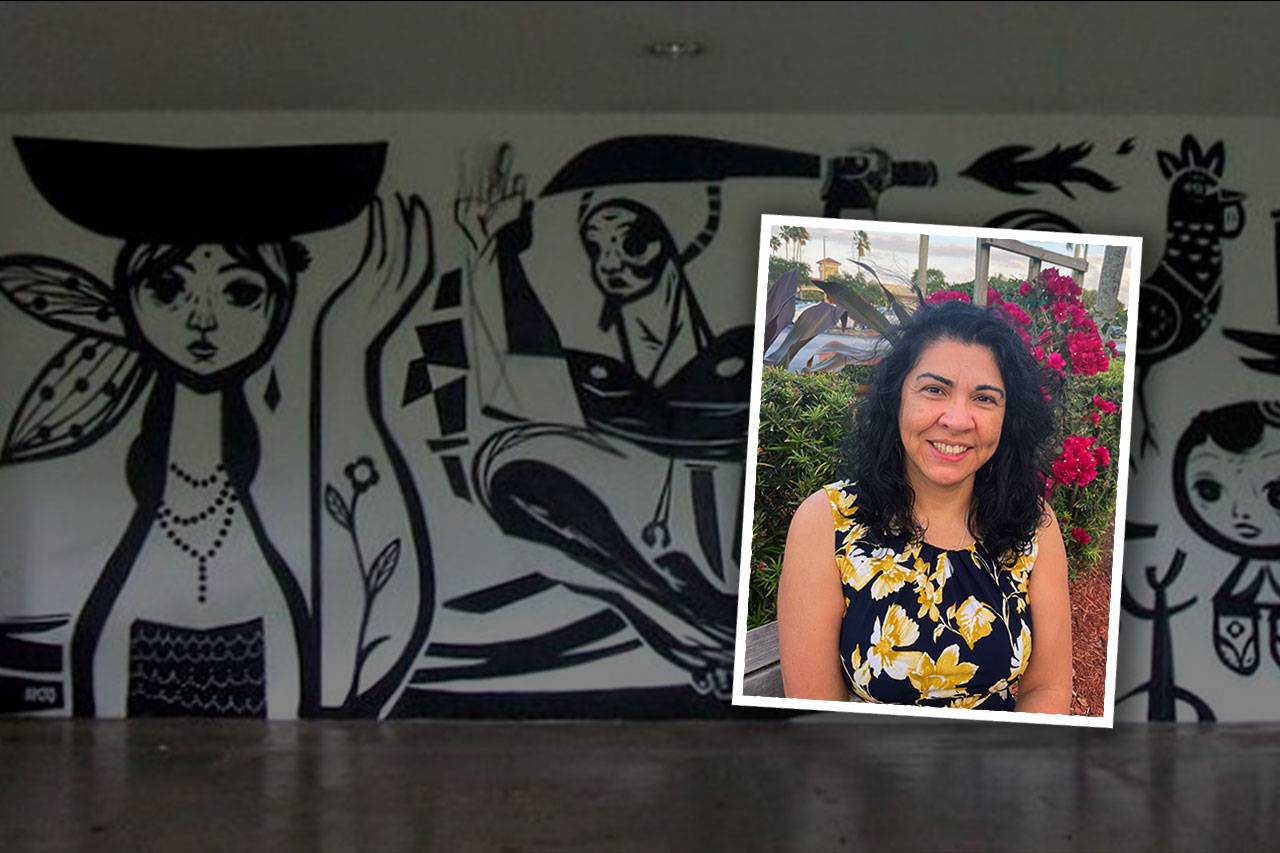Research Thursdays - Marquese McFerguson Analyzes Hip Hop Culture
Thursday, Apr 08, 2021
Marquese McFerguson, Ph.D., Assistant Professor of Intercultural Communication in the School of Communication and Multimedia Studies, has recently had two articles published related to hip hop. The first is a chapter in the book “Reimagining Black Masculinities: Race, Gender, and Public Space.” McFerguson’s chapter explores the rise of Outkast and the influence of 90s Black Popular Culture/Hip Hop Media on black youth. The other is “Between DJs, turntables, and (re)imagining ivory tower experiences.”
This article was published in Review of Communication: tandfonline.com/doi/full/10.1080/15358593.2020.1829015
McFerguson was also featured as the Black History Month Artist in Residence for the Mosaic Templars Cultural Center: arktimes.com/entertainment/2021/02/01/mosaic-templars-cultural-center-celebrates-black-history-month-with-poet-marquese-mcferguson-a-poster-series-and-an-ice-cream-collaboration
 McFerguson’s research examines hip-hop culture, black masculinity and contemporary black popular culture. His scholarship about black popular culture uses prose, poetics and performance to explore the relationship between media representations and everyday life. In his essay in the Review of Communication, he uses snippets of memories to create a layered account of his experience of being an insider/outsider within racialized academic spaces. Sharing these snippets leads him to a discussion about how the choices he deploys within his academic writing are an active attempt to make room and create a homeplace (bell hooks) for himself within the ivory tower.
McFerguson’s research examines hip-hop culture, black masculinity and contemporary black popular culture. His scholarship about black popular culture uses prose, poetics and performance to explore the relationship between media representations and everyday life. In his essay in the Review of Communication, he uses snippets of memories to create a layered account of his experience of being an insider/outsider within racialized academic spaces. Sharing these snippets leads him to a discussion about how the choices he deploys within his academic writing are an active attempt to make room and create a homeplace (bell hooks) for himself within the ivory tower.
“Extending the hip-hop DJ metaphor, I discuss how DJs use turntables and records to sonically merge different worlds by bringing together disparate sounds, voices and cultures. I argue that, like the DJ, my writing intentionally brings together two worlds/two cultures/ two voices/two selves: my academic self and my hip-hop self. Through word choice (hip-hop vernacular), use of hip-hop aesthetics (hip-hop metaphors and examples), and who I cite (sampling), I remix canonical Eurocentric ways of producing knowledge, make room for my voice to be heard in racialized academic homeplaces, and (re)imagine my experiences within academia.”
McFerguson strove to compose a scholarly text that shows/embodies the aesthetics, logics and effects of DJing. Thus, he visually structured his essay in a way that invites readers’ eyes to alternate back and forth between narratives on the right and left sides of the page, mirroring the ways a DJ’s hands alternate back and forth between records/sonic narratives on the right and left sides of a turntable. Doing this opens the door for questions like: How can researchers examine hip hop not just as a cultural production, but as an art form that can aesthetically influence the way scholarship is composed within academia?
McFerguson received his Ph.D. from the University of South Florida. Outside of his research and teaching at FAU, he is also an award-winning slam poet and teaching artist who has performed at academic institutions and performance venues throughout the United States and the United Kingdom. Ferguson was interviewed for the podcast “A Mile in My Shoes: The Walk and Talk Podcast” here: Walk & Talk With Educator Dr. Marquese McFerguson by A Mile In My Shoes: The Walk & Talk Podcast • A podcast on Anchor


